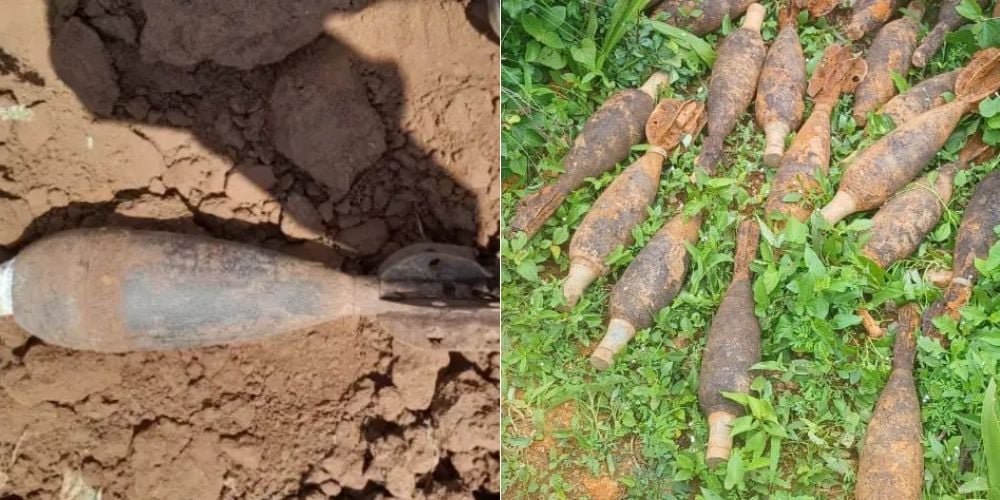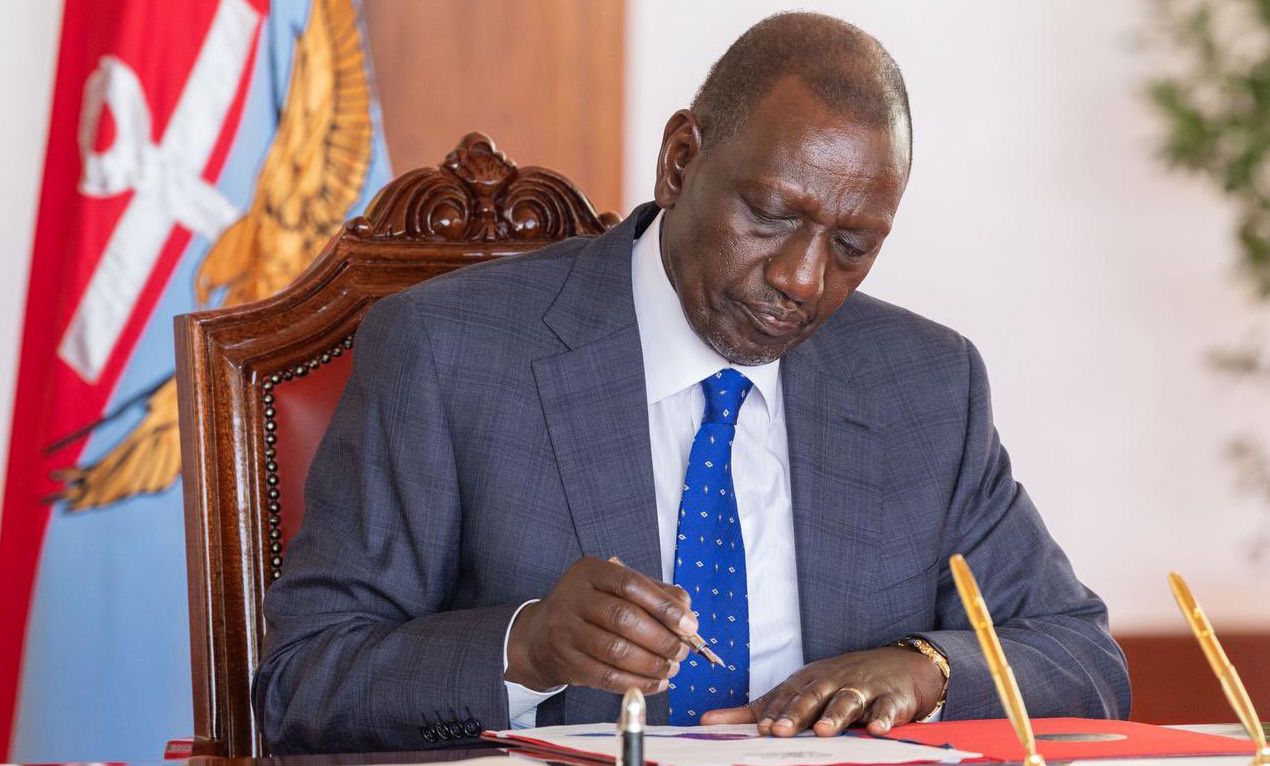Police and bomb squad specialists were deployed on Friday, October 24, to Nduma village in Kikuyu, Kiambu County, after farmers stumbled upon a live bomb while tilling one of the farms.
According to Kikuyu Sub-County Police Commander Joseph Ndege, the device, identified as an 80mm artillery bomb; commonly referred to as an 80 mic mic is believed to be a remnant from the colonial era.
The explosive was found partially buried in the soil, prompting immediate evacuation and the deployment of a bomb disposal unit from Nairobi.
“Its magnitude in terms of explosion cannot be detonated within this area,” said Commander Ndege at the scene. “We have deliberately come to this ground to see how we can dispose of it, but it has been recommended that even though this ground is very vast, it’s a bit frayed and therefore some damages are likely to be experienced.”
Ndege explained that due to the bomb’s high explosive potential, if detonated locally, it could cause damage within a 50-meter radius.
Read More
“Remember, here we are talking of a bomb, detonating a bomb,” he added. “The threshold at which it can explode is to an extent of more than 50 meters. To this extent, it has been recommended that this ordinance be exploded somewhere safer, preferably in Kanyonyo, but we shall leave that to the experts to determine further.”
Following the discovery, police cordoned off the area and safely transported the explosive to a secure location as investigations and preparations for controlled detonation continue.
Residents were urged to remain vigilant and immediately report any suspicious metallic objects or buried materials to authorities.

In April this year, a similar incident was reported in Hellu Ward, Moyale Sub-County, Marsabit County, where police recovered 23 live mortar bombs suspected to have been left behind by colonial forces.
The 81mm explosives were discovered by locals digging in search of alleged buried treasures, prompting a response by Kenya Defence Forces (KDF) bomb experts.
Marsabit County Police Commander Leonard Kimaiyo at the time said that investigations were ongoing to determine whether more such devices remained buried in the area, cautioning residents against unregulated excavation or artisanal mining activities that could expose hidden explosives.
The area was placed under surveillance as Kimaiyo urged residents to report to the authorities on any mineral or treasure searching activities.
The Nduma incident adds to growing concerns about unexploded ordnance left behind decades ago, with authorities now emphasizing public awareness and safety to prevent potential tragedies as the Marsabit bombs remains were believed to be from the colonial era.






